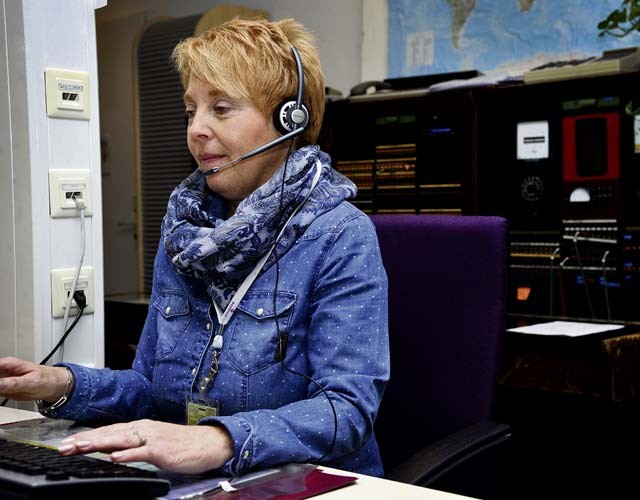
“USAFE switchboard operator, how may I help you?” is a short phrase many who have called the U.S. Air Forces in Europe consolidated switchboard may be familiar with.
The 40 members of the Telephone Operations Facility, located on Ramstein, work 24/7, 365 days a year to service not only Ramstein and USAFE but Air Force, Army, Navy, Marines and U.S. State Department personnel all over the world.
The facility directly impacts 14 bases located outside of the continental U.S., though they have the ability to connect callers from base to base regardless of location. They receive approximately 1.5 million calls per year.
With such a busy job, the operators keep their main priority in mind: customer service.
“Sometimes we’re one of the first impressions someone has when they are stationed overseas,” said Pia-Maria Sakuda, 86th Communications Squadron chief of telephone operations. “(Newcomers) will call us and ask where certain things are or who they should talk to, so we keep a level of professionalism to ensure their first impression is positive. There should be no question about perfect customer service.”
In line with their customer service priority, Sakuda said the average answer time for 85 percent of the calls they receive is less than one second. During busier hours, the maximum answer time is four seconds.
Because the operators speak with people around the world on a daily basis, they speak nine different languages in total and are required to be mostly fluent in a minimum of three.
“I speak three languages: German, Italian and, of course, English,” said Christel Piscione, 86th CS consolidated switchboard operator. “I can also speak a little bit of French, but just enough for basic communication.”
Because the operators work consistently throughout the year, Sakuda said it is important to find an efficient way to schedule each person’s shifts.
“I adjust the shift schedule based off of the call traffic value,” Sakuda said. “At 3 p.m. we receive the most calls so we need the most people. At seven in the morning we start with fewer people, and throughout the day, more and more people come in. We typically have two people in the middle of the night to ensure the switchboard is constantly manned.”
Piscione said her favorite part of the job is talking to people and being able to provide assistance.
Operators at the USAFE consolidated switchboard all understand the importance of what they do and take great pride to provide quality service, Sakuda explained.
“We are not employed (by civilians), so that’s what makes us unique,” Sakuda said. “We are here to ultimately support the military, and for that reason, I know we’re important. The military has bases in less civilized areas, so we become especially useful in those cases because we can connect to anyone. We are supporting Europe, but we are not limited.”
The consolidated switchboard operators are the middlemen who can connect callers to more than 30,000 telephone numbers. Though it may seem like a simple process, they make the little connections, which in turn form a strong connection between allied partner nations all over the world.







